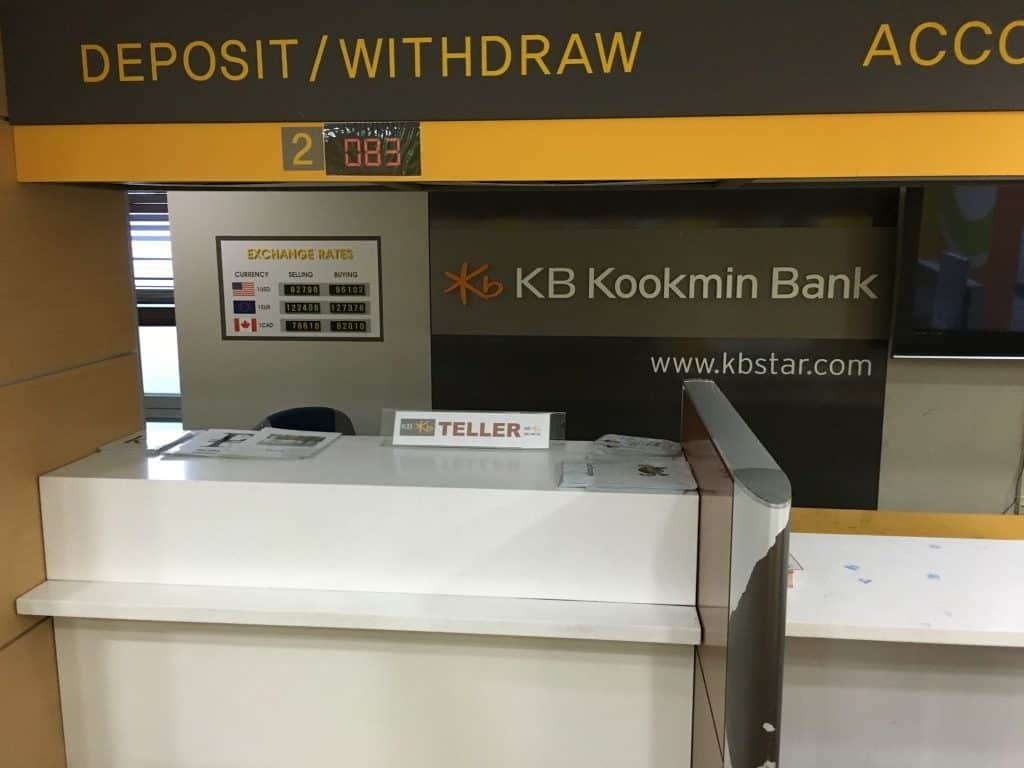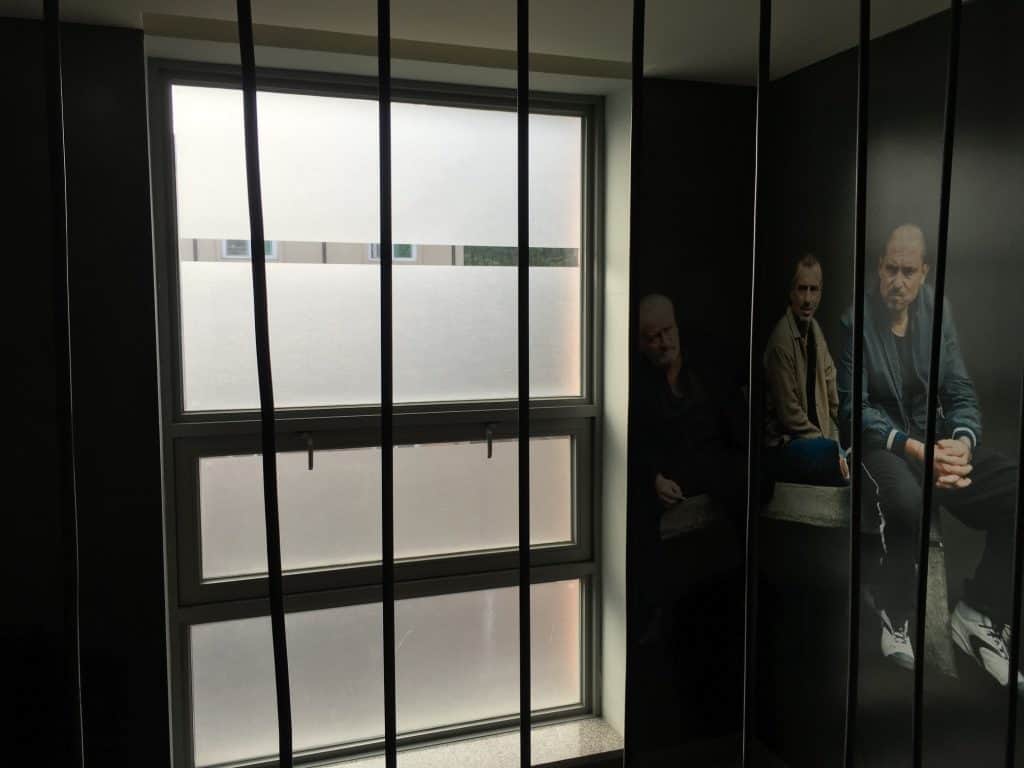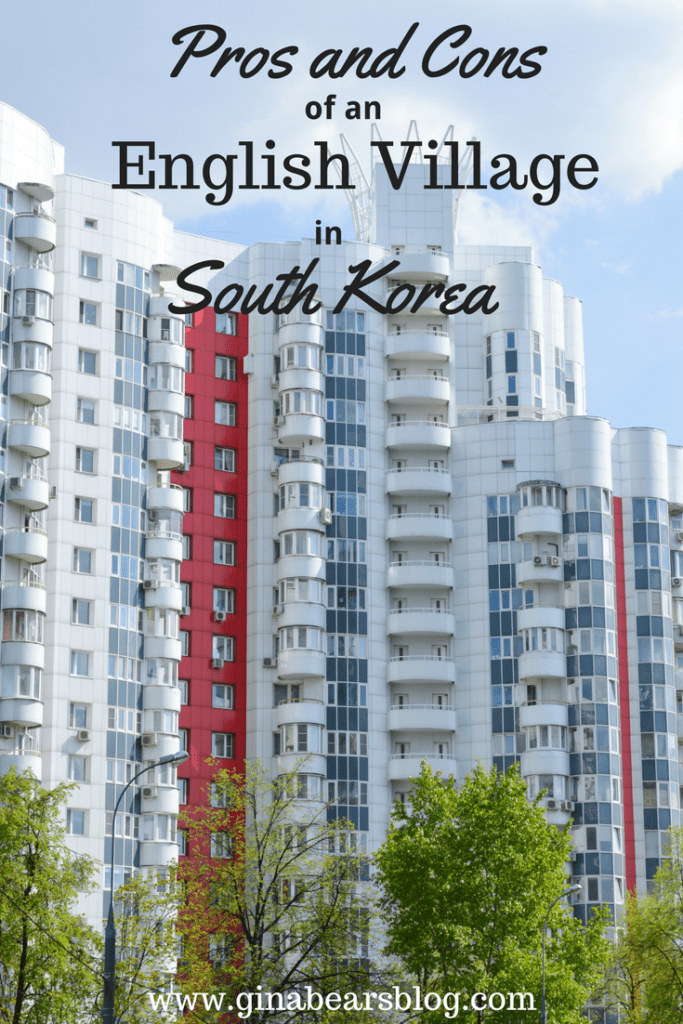Today’s guest post comes from an English teacher and blogger who goes by Spencer Travels. His blog, Travel by Broom chronicles his adventures in Korea and Southeast Asia. I always get a lot of questions on my YouTube channel about other options to teach English rather than at public school or hagwon so here’s your opportunity to know more about the alternatives.
For the past two years, I have been living and working in an English Village on the outskirts of Seoul, allowing me easy access to the city. Working in an English Village is not your typical ESL experience and some days you will feel more like an entertainer than a real teacher; however, I still highly recommend working at one as a perfect start to an ESL career or for a gap year in South Korea. I have taught many different age groups ranging from kindergarten to university.
Getting the Job
I found my position via Dave’s ESL Cafe. An English Village is not a typical job you’ll find with a recruiter as these positions seek out participants first hand. Usually the person doing the recruiting, is someone you are going to be working with. This is super helpful as you can get a quick feel for if you will get along with them or not.
Benefits
Most English Villages will have similar benefits of working at a hagwon, public, or private school but with a few twists. Primary benefits include health insurance, housing, and food. When it comes to food, my particular village provides three square meals a day during sessions, whereas hagwon or public schools provide only lunch or dinner.
In addition, the provided housing is on campus, and since the kids spend the night in the village you will always be surrounded by them. You are allowed to leave when you are not working and you shoud be aware going to and from your house can involve walking past your students. The best part about the job is I don’t have to pay for any utilities while I live and work at the English Village. That means no electricity, water or even internet bills! When it comes to saving money, working at an English Village has a lot of benefits besides just the paycheck.
Related: JET Program Versus GEPIK
Teaching
The teaching philosophy at most English Villages is full immersion. This means every class is built around a certain theme. For instance, we have a bank class, and the classroom is made to look like the lobby of a bank. We also have a fake airplane setup, a jail for the police station, and several other theme-oriented classes. The classes focus on speaking, flash cards and playing games with no textbook in sight.
We will also have special programs like debate, leadership, and even media and marketing. In this position, I have schoolchildren all the way up to adults and even Japanese, Chinese, Russians, and Singaporeans! Learning how to handle different classes is a skill that you will either quickly develop or miserably fail.
Working Hours and Sessions
There are two different shifts and you are able to request the ones you want, but a rotation is in place if no one requests. The day shift is from 9 am – 6 pm and the evening shift spans from 1:30 pm – 8:30 pm. Teachers are given two days off a week but vary every week. Sometimes days off are not always on the weekend or consecutive.
Downsides
The number one setback is not having a set schedule, and the days off change every week depending on your shift. The pay isn’t as high as other ESL jobs, but the benefits make up for that. Since an English Village is similar to a camp, you never really get to know the kids. In addition, living on campus means you don’t fully escape work and you’re constantly surrounded by the people you work with and the kids you just taught. With the schedule always changing, it’s difficult to make friends outside your fellow coworkers. Luckily, at my village, we have about 15 – 20 foreign teachers at any given time and Korean teachers who all speak fluent English.
Conclusion
As sweet as this gig is, many English Villages are closing and shutting down. There once was a time when almost every city had one, but most if not all have been closing. Despite this, many still exist and some are thriving while others are starting to fall apart as well.
All that said, I still think working at an English Village is still an excellent starting position for ESL teaching because of the breadth of experience one will gain and it can be a little more fun for those who are seeking a gap year.
Has anyone else worked at an English Village or have any questions I didn’t answer?
Cheers!
Spencer is a 28-year-old Native Texan with a big thirst for travel. Currently, he is living and working in Seoul, South Korea where he is an ESL Teacher. He is also working on a few different websites with his baby being Travel by Broom. While doing all of this, he is managing to find time to finish his Masters Degree online from a state university back in Texas. If you’d like, you can follow his adventures on Facebook, Instagram, Twitter and Pinterest.
// ]]>














This was a very interesting post for me. I worked as a french teacher in Colombia at a private school and I know many people work as teachers in Corea as well but have never heard of English villages. Why do they cease to be so common/popular? I like how it covers the food and lodging for you, however, I am not sure if I would like to be there nonstop. You can never leave the role of the teacher that way and always have to keep up certain standards…somehow it is like being a student again 🙂 Or maybe I am wrong, who knows 🙂
Karin,
They’re becoming less popular because Koreans tend to go to after school academies and study for very long hours. Also, a lot of the funding is being cut for many positions in Korea. I would also hate being there nonstop. I would feel like I have to be a teacher 24/7. When you put it like being a student again, I definitely agree with you! I didn’t know you were a French teacher in Columbia! How was your experience?
3Probably a big reason many of them are not as popular is because Koreans always try to follow the latest trends. Back when English Villages started coming around it was very “trendy” to go to one and for a city to build one. Nowadays they just are not trendy.
I love this post, because it is on my bucketlist to teach either french, Dutch or English in another country.
If you could go to any country and teach English or Dutch right now, where would it be? 😀
I can highly recommend South Korea!
Wow! I’d never even heard of language villages. What a great option for both teachers and learners. It sounds immersive, which is the fastest way for a learner to learn a new language.
I totally agree! Immersing yourself is the best and most frustrating but rewarding way! 😀
This is a really useful post. I really like the way Spencer details how we got the job, working hours, benefits and so on. All really important stuff. Definitely another option for aspiring ESL teachers to consider.
I definitely like his break down as well. This is a great opportunity for potential teachers coming over to Korea. 🙂
Personally, I think its a great one!
Great information here! I wish I tried doing this when I was younger.
You can always come over for a gap year! 😉
Very interesting. This is the first I’ve heard of this concept. It would be a fun experience but not being able to really escape the “village” is a pretty dreadful downside. I probably wouldn’t sign up for this, to be honest.
Me either, but some people are more interested in something other than the traditional routes. I do like the idea of free food (I hate cooking) and the proximity to Seoul.
You can definitely escape the village. It comes with the added benefit of never accidently running into your students when you leave the village.
Very interesting! I didn’t even realize they had other teaching options such as this. Thank you for sharing.
I didn’t know either and I think it would be great for everyone to know about it!
As a performer I totally wanted to work at an English Village. I even had an interview with one in Paju, but wanted to be in a bigger city. I think I’d appreciate the change-up in schedule every so often. How are those “3-squares a day” as far as quality go?
I don’t blame you! Seoul is where it’s at, but I think Spencer lives in an English village near Seoul!
The Village I work at is in Seoul! While it’s on the edge of Seoul it is in Seoul proper and not just in the extended metro. Seoul proper actually has a few English village. The meals honestly are not that great but most of the time they are pretty decent, however, I do eat out a lot but not anywhere close to how often most other people do.
This was very informative. I had a former co-worker who went to work at an English village. It’s seems like a pretty nice deal, but I’m not sure I would like being surrounded by students all the time! I need privacy and just space to decompress and enjoy the parts of my life besides work.
Me too! I would hate being surrounded by students 24/7! That would drive me crazy!
While you do have the possibility of running into you students it is not every single time and you do have your own space. You get your own efficiency apartment and its a great escape.
Thanks for sharing your experience on working in an English Village! Definitely not what I’ve heard of before as a typical ESL experience, but still sounds like a great opportunity to get your foot in the door in that field. And obviously to base yourself with a job in a foreign city to travel and explore!
It’s probably one of the better opportunities to get your foot in the door and get free food! Free food is good food in my opinion! 😉 Hahahaha. Would you work at an English village?
Traveling and Exploring is one of the main reasons why I am working here!
The free food and utilities would be a big come-on. Big savings from those. This is very informative and would be a good read for teachers looking for work in South Korea.
I think so too! I hate cooking, and the biggest asset is I don’t have to! 😀
I’ve been to English villages in Yangpyeong and in Paju. I just visited the place but I never knew how it feels like working as an English teacher in the village. THank goodness somebody like Spencer shared the experience of working in English Village.
I would definitely have to agree! Teaching English at a village is definitely a unique experience. This is definitely good to know! 😀
As someone from not from a native speaker country it is very difficult to get an English teaching job in Korea. I imagine it’s almost impossible to get into an English Village.
I’m sorry to hear about that. I wish Korea would change the rules because I met a French girl who had a masters in English education and she’s not qualified in Korea even though she has a mastery and deeper knowledge than most native speakers. 🙁
I’ve never heard of anyone teaching at an English village so this was really interesting! I don’t think I could deal with living on campus. This year I’m a 25 minute commute to school which is a total pain, but I love that when I finish school I’m no where near it! Last year I lived 5 minutes away from my hagwon but I would sometimes see my students in the convenience store under my apt while I was hungover and buying ramyeon in my pyjamas 😂😂😂😂
Running into my students at the Convenience store is something that has never happened to me.
This post made me glad I never worked at an English Village! I always heard mixed reviews on working there. For me, flexibility in my life is key, so a larger paycheck couldn’t compensate for potentially working weekends and living where I worked if I had other options (and there are plenty in Korea.) Thanks for sharing!
One of the first jobs I applied for in Korea was at an English Village but I was a bit unclear how it operated. After reading this, I’m kinda glad the opportunity fell through cause I dont know how I would feel if I didn’t have a set schedule and I dont like that schedule prohibits you from making any outside friends. But to those who do it, kudos! To each their own right?
This is a really great post Spencer! When I first taught in Korea I had no idea that there were other options to teaching other than Public schools. I knew very little about Hagwons, and even less about English Villages!
Thank you for sharing!